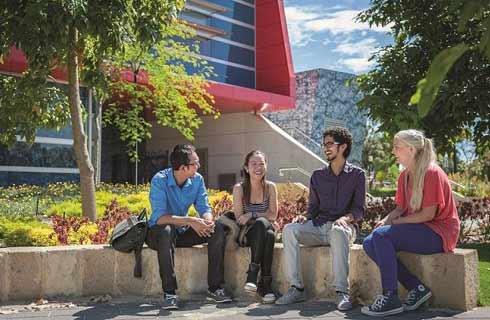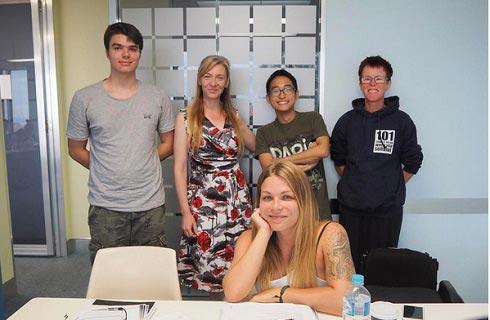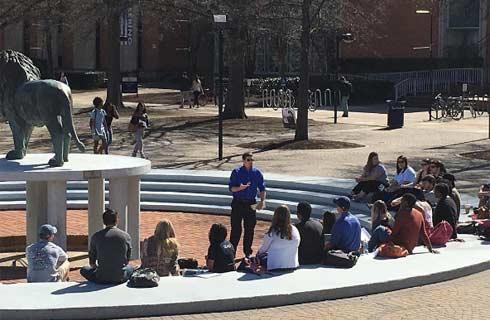工学(荣誉)土木与环境工程
MEng (Hons) Civil and Environmental Engineering

学历文凭
Undergraduate Masters

专业院系

开学时间

课程时长

课程学费

国际学生入学条件
IDP—雅思考试联合主办方

雅思考试总分
6.0
了解更多
雅思考试指南
- 雅思总分:6
- 托福网考总分:78
- 托福笔试总分:160
- 其他语言考试:PTE Academic: OVERALL - 59 with: Listening - 59; Reading - 59; Speaking - 59; Writing - 59
CRICOS代码: H255
申请截止日期: 请与IDP顾问联系以获取详细信息。
课程简介
Civil and Environmental Engineering is a hugely relevant degree for today. The environment is a major consideration for local, national and international companies and governments, but never more is this true than when it comes to engineering projects of all sizes. Greater consideration has to be given to a range of environmental factors and this degree will go some way to making students aware of them.<br>This Honours degree programme follows a similar structure to the straight MEng Civil Engineering degree. The major difference is the compulsory requirement to study the Environmental Engineering course in year 4. This particular course deals with various aspects related to:<br>surface water: sources of water pollution and their impact on aqueous environment and public health, water quality and supply, wastewater treatment,<br>soil and groundwater: groundwater flow, groundwater contamination and pollution, subsurface contaminants transport mechanisms, sustainable land-groundwater management,<br>solid waste: sources of solid waste, characterisation and treatment of solid waste, solid waste management,<br>air pollution and control: air pollutants and sources, air pollution meteorology, pollutant dispersion in the air, air pollution control.<br>Students will develop a greater understanding of the environmental challenges and considerations required as part of major civil engineering projects, how to manage these challenges and implement effective solutions.
相关申请
 预科
预科 奖学金
奖学金 实习机会
实习机会 在校学习
在校学习 跨境学习
跨境学习 校园授课-线上开始
校园授课-线上开始 在线/远程学习
在线/远程学习
学校排名

世界排名158
数据源:泰晤士高等教育世界大学排名
关于阿伯丁大学

阿伯丁大学成立于1495年,是英国第五的大古老的大学,被《卫报大学指南2025》和《泰晤士报》和《星期日泰晤士报》评为英国前15所大学。该大学共获得五项诺贝尔奖,涉及医学、营养学、化学和物理学,突破性的研究和创新传统一直延续到今天。2021年,该大学因土壤科学研究和教学而获得著名的女王周年奖,这是英国继续教育和高等教育的最高荣誉。阿伯丁大学拥有四座图书馆,其中包括令人惊叹的邓肯·赖斯爵士图书馆,该图书馆被评为世界上最美丽的图书馆之一(CEOWORLD杂志,2016)。一个最先进的科学教学中心于2022年开放,为化学、医学和地球科学提供专业教学、培训和设施。设施还包括符合奥运会标准的阿伯丁运动村和水上运动中心。阿伯丁被评为最安全、最实惠的城市之一(2022年完整大学指南),该大学在性价比方面排名第二(2023年学生拥护大学奖)。这是一个充满活力和国际化的城市,拥有丰富的文化和历史。它位于美丽的苏格兰东北部,地理位置优越,周围环绕着美丽的乡村和绵延数英里的沙滩。该大学欢迎来自130个国家的14000多名学生组成的多元化社区。有三个校区:阿伯丁的国王学院校区和福雷斯特希尔医学院,以及卡塔尔多哈阿伯丁大学的AFG学院。该大学与全球合作大学开展国际交流项目,并提供一系列在线学位和短期课程。 阿伯丁大学为学生提供了广泛的奖学金,旨在帮助学生在大学期间自食其力。
本校相关课程
其他相关课程

工学(荣誉)土木与环境工程
 思克莱德大学
思克莱德大学泰晤士高等教育世界大学排名:301
学历文凭
Undergraduate Masters
开学日期
课程费用总额


Bachelor of Technology (Engineering) - Civil
 伊迪斯科文大学
伊迪斯科文大学学历文凭
Bachelor Degree
开学日期
课程费用总额


PhD in Transport Studies - Digital Futures
 利兹大学
利兹大学泰晤士高等教育世界大学排名:129
学历文凭
Ph.D.
开学日期
课程费用总额


工程学硕士-运输工程(MESTU-TRAN-T3MES)
 奥克兰大学
奥克兰大学泰晤士高等教育世界大学排名:150
学历文凭
Masters Degree (Taught and Research)
开学日期
课程费用总额


Bachelor of Engineering (Honours) / Bachelor of Science Conjoint - Civil Engineering
 奥克兰大学
奥克兰大学泰晤士高等教育世界大学排名:150
学历文凭
Dual (Conjoint) Degree
开学日期
课程费用总额


土木建筑设计高级文凭
 西澳大利亚州职业技术学院
西澳大利亚州职业技术学院学历文凭
Advanced Diploma
开学日期
课程费用总额
































